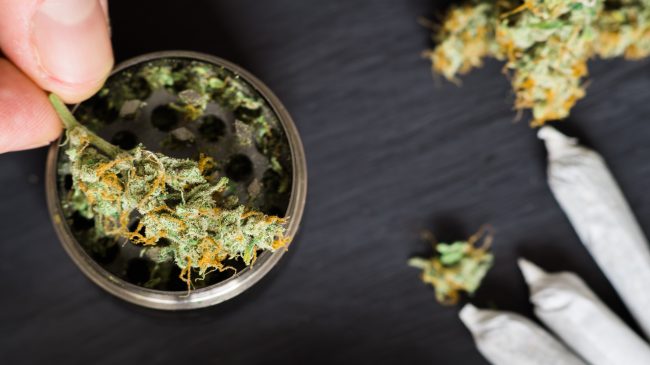As drug overdoses ravage the American landscape, the cartels are enjoying unprecedented profit. Only three months after announcing “Operation Synthetic Opioids Surge” to fight this epidemic, Jeff Sessions submitted to pressure from the White House and resigned as attorney general. While Matt Whitaker assumes the temporary role of acting AG, people across the political spectrum are welcoming Trump’s endorsement of mandatory-sentencing reform and the prospect of new leadership at the Department of Justice — but not the cartels.
Sessions was great for business. The hawkish AG was a law and order crusader, who not only rescinded federal protection for states that legalized marijuana, but often prosecuted doctors and pharmacists into under prescribing. These actions squeezed the supply of legal pharmaceutical drugs. But scarcity is great for prices and demand for highly-addictive drugs is indifferent to restrictive laws. So the result of Sessions’ approach was actually just more clients and money for the cartels.
Sessions did coordinate with other federal agencies to seize a record number of hard drugs, but seizures have no real effect on drug supply. It only takes about $1,000 to grow and manufacture a kilogram of cocaine in Colombia. Yet the moment it’s in the U.S., it can be sold for over $150,000. Meanwhile, other popular drugs like methamphetamine are completely synthetic, which means they don’t require cultivation and can be made in a lab anywhere for even less. Regardless of how much federal agencies try, it’s a futile effort to dissuade cartels from flooding the U.S. with narcotics by intercepting their smugglings.
In fact, Sessions’ DOJ was often looking in the wrong places. Contrary to presidential belief, most drugs don’t come here from across the border—they’re delivered by the U.S. Postal Service. Yes, federal agencies not only increase the price of drugs, they literally transport them at subsidized rates. But this is nothing new, as the U.S. isn’t designed to fight underground markets. Unlike a democratic government, cartels can adjust their practices instantly. The omnibus opioid bill that President Trump just signed in October was obsolete shortly after it was announced in February, as the cartels quickly adjusted their supply chain and business model. This is why the advent of prohibition has always been followed by unintended conundrums.
Woodrow Wilson, the president who first launched the war on drugs, including alcohol, died before he could witness the chaos that followed. Murder skyrocketed, alcohol poisonings quadrupled, and the most ruthless of society profited. Prohibition also brought a new affinity for liquor, which reflected the strong incentive to concentrate contraband to evade authorities. The economics of prohibition still persist today, and have brought many drug users to the altar of fentanyl, a synthetic opioid up to 100 times stronger than morphine. Fentanyl is now the leading cause of overdose deaths in the country, as heroin and cocaine are increasingly adulterated with the cheap and potent poison. The $100 million Customs and Border Protection plans to spend on technology that can allegedly detect drugs in packages sounds productive, but there’s little chance they’ll be able to detect narcotics so concentrated a few sand-like grains can kill an addict. And these types of enforcement actually contribute to more concentrated drugs and overdoses. Like the bootleggers of the 1920s, cartels are the smartest of criminals and monopolize the black market as enforcement proliferates and removes their low-level competition.
The last thing cartels want is less drug enforcement.
With Sessions’ departure, the DOJ may change its approach to the archaic drug war. The biggest blow landed against the cartels was not the unprecedented resources given to authorities, but the legalization of recreational marijuana in various states. Marijuana rarely comes over the border, it’s now grown here, and many municipalities have enjoyed millions in tax revenue previously hoarded by criminals—and some unexpected benefits.
In states that have legalized recreational marijuana, teen pot use has actually plummeted. Many are surprised by this outcome, but it’s completely reasonable that exposing legitimate companies to public scrutiny might be beneficial. The shady guy willing to sell weed to your kids can’t earn a living when marijuana can be bought at a store. Similarly, drug use in Portugal has also dropped after the decriminalization of all drugs. Hopefully, these insights will inform a new, pragmatic AG as to how the U.S. can actually cure its overdose epidemic with reduced penalties and drug liberalization.
But as Sessions’ reign concludes, the cartels may be in luck. Prohibitionist policies remain a bipartisan plague. Government has a perverse incentive to cause problems that it can later try to solve, and no program has been exploited this way more than the drug war. Since Richard Nixon signed the Controlled Substances Act in 1970, which created the Drug Enforcement Administration, drug overdose deaths have increased over 550 percent.
In the end, few in office will admit that the war on drugs has failed. But if the new AG, whether its Whitaker or a new appointment, can resist prohibitionist precedent, it will only be the cartels that miss Jeff Sessions.
This column was originally published in The Orange County Register.

